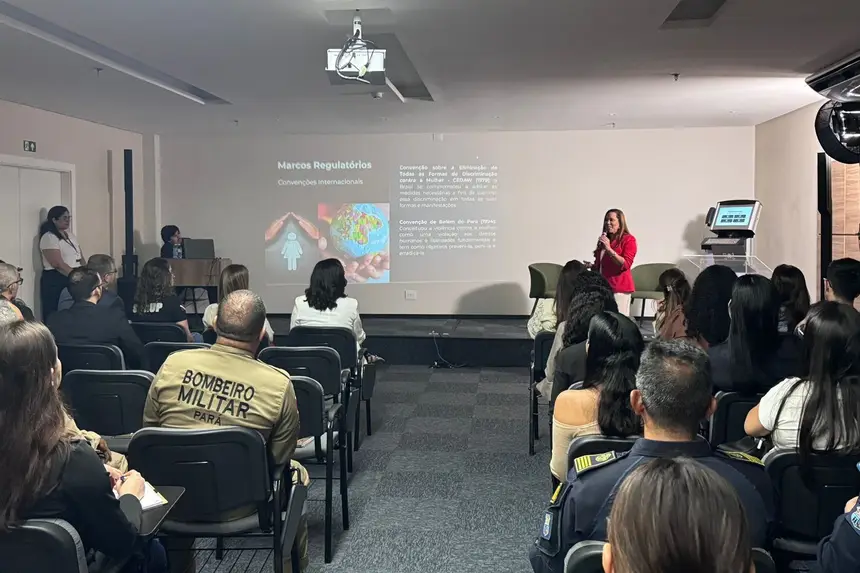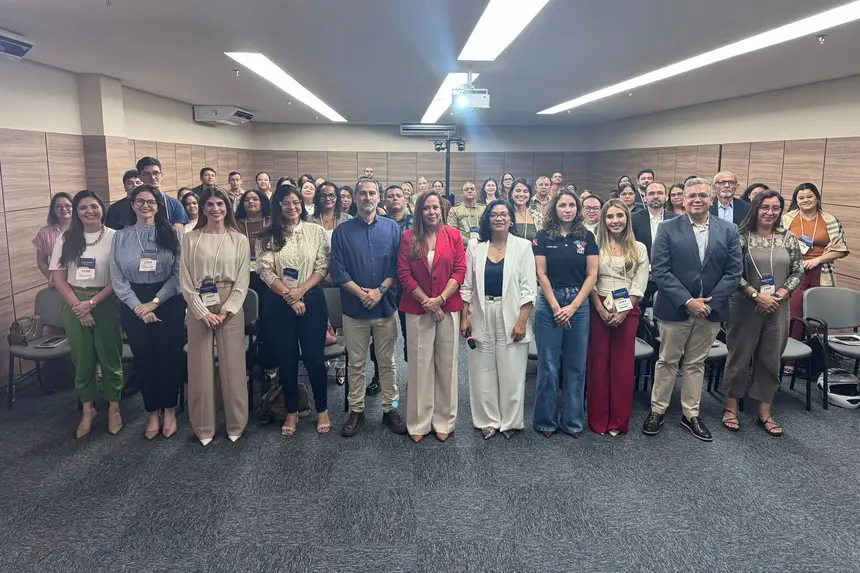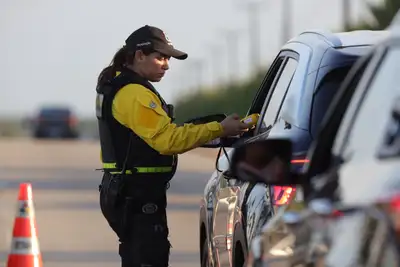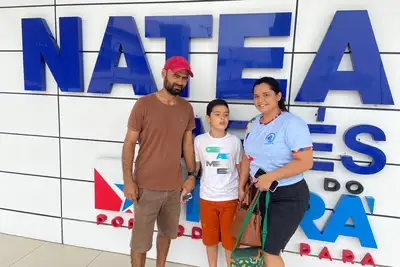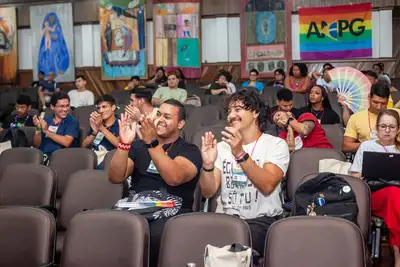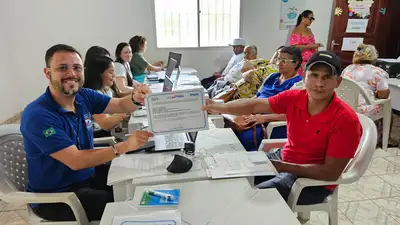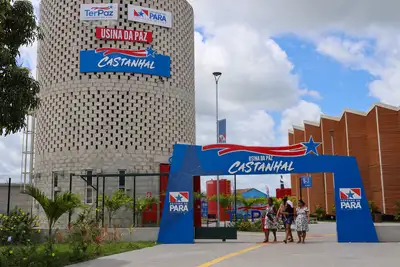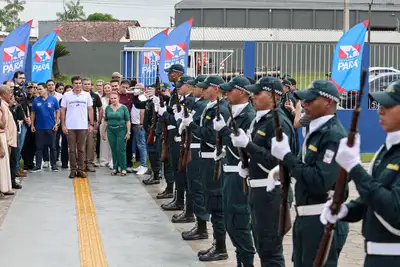Segup expands qualification of security agents and protection network for assisting victims of gender-based violence
The goal is to elevate the level of service through awareness and humanization techniques, addressing the responsibilities of each sector involved
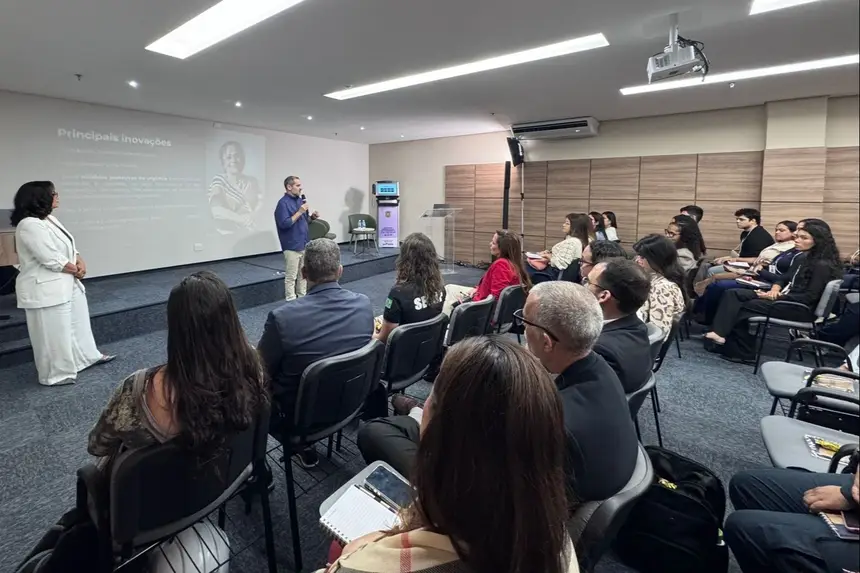
The Secretary of Public Security and Social Defense (Segup), through the Directorate of Public Policies and Social Prevention (DPS), started on the morning of this Tuesday, the 10th, the ‘Course on Humanized Assistance to Women Victimized by Gender-Based Violence’, to ensure the expansion of qualification for public security agents and the protection network, elevating the level of service through awareness and humanization techniques, addressing the responsibilities of each sector involved. The qualification will continue until next Friday (12), in Belém.
The Secretary of Public Security and Social Defense, Ualame Machado, participated in the opening of the qualification and reinforced the importance of the participation and willingness of agents to improve their knowledge and techniques to ensure prevention and also better assistance to women in the State.
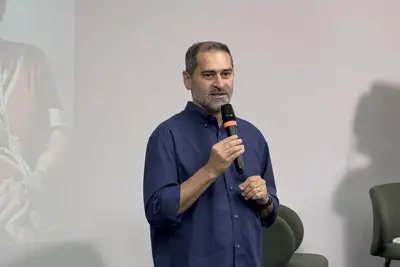
“We do not know what the pain of a woman suffering from violence really is, but we imagine it is something really very difficult, that needs to be prevented and combated. So, we have this notion, and within Segup several measures have already been adopted, such as the Pró-Mulher Pará Program, which uses pink vehicles with specialized teams to assist women; we have the SOS Maria da Penha from the PM, which assists and follows up with women who already have protective measures, in addition to the Alerta Pará Mulher, which can be activated via CIOp for women already registered in SOS. And soon we will be inaugurating specialized assistance within Segup, for women who already have protective measures but do not have psychological support, because we provide police and prevention follow-up, but there was no psychological and psychiatric support, and now we will offer it. We also have the virtual Deam, where women can already register occurrences and request protective measures online, in addition to the most recent implementation of service kiosks for women, which are installed in strategic locations,” explained the head of Segup.
The secretary also added: “with the training we go beyond the equipment delivered, we expand the protection network, because this work is not only with the police, as public security cannot be done without police, but it also cannot be done solely with police. And a network of assistance to women is fundamental, that’s why many of you who are here belong to this network, you are not exactly police forces in the State, but you make up this network, and it is important to be qualified, because I always say that better than knowing what to do, is also knowing what not to do. The best is knowing what to ask and what not to ask a woman who has already been a victim of violence. So this training we are offering is so that we can increasingly improve assistance and ensure protection for women.”
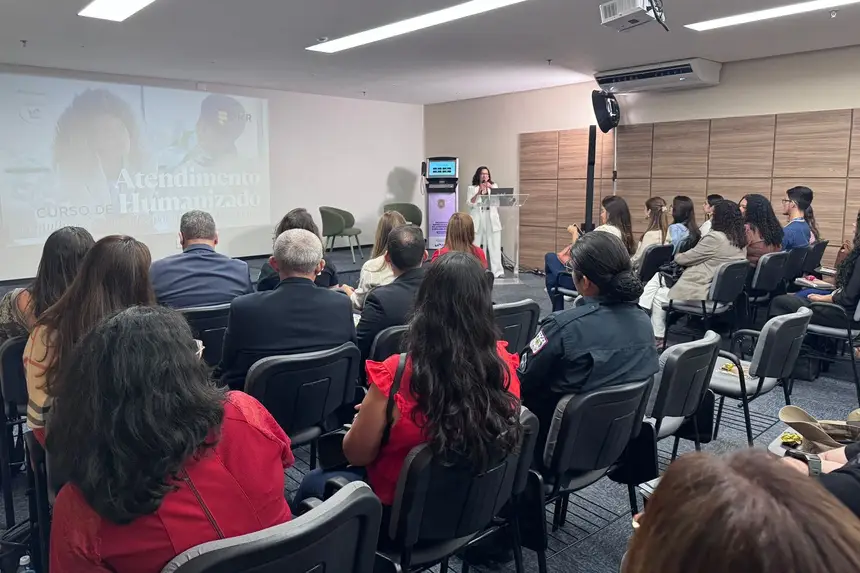
About the qualification - The qualification is promoted from resources from the State Public Security Fund (Fesp), linked to Segup, with funds allocated for the work of preventing violence against women. The course is divided into 6 modules of 4 hours each, totaling 24 hours/course. The modules will be developed in expositional classes applied in both in-person and online formats. The classes will be based on scientific evidence, with theoretical deepening, analysis of statistical data from official sources, in addition to dynamics with case studies, practical exercises, debates, and simulations.
Among the themes discussed are: theoretical aspects of violence against women, discussion on social reality and intersectionalities, the role of public security bodies and the protection network, prevention of revictimization, and techniques aimed at welcoming and protecting.
For the Director of Public Policies and Social Prevention of Segup, Delegate Ariane Melo, the qualification in the specific axis regarding gender-based violence aims to further qualify agents for humanized assistance in Pará.
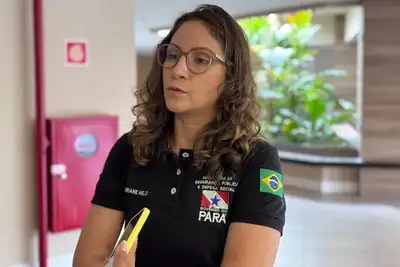
“This training, specifically, comes from an axis that is worked from the Federal Government to the State Governments, therefore we have assistance and funds available to work on this axis which is the prevention of crimes against women. And we hope that from here the security professional will be increasingly able to provide humanized, qualified assistance that encourages the victim of violence to report the occurrence, so that she feels truly safe and comfortable to take this important step. What we often perceive is that violence involves a cycle, so not always the woman who is suffering violence feels safe to make this report, and at a moment when she has this 'insight', this security, the professional must be able to provide assistance in a way that sees and intensifies this woman's desire, because the reality is that most of the time she waits, she hopes for the improvement of the aggressor with whom she has a strong bond, sometimes a financial bond or the emotional bond itself. Therefore, having agents and the entire protection network attentive and qualified for this, the encouragement of this woman, the listening, and all the guarantees of rights that she has will be made available in a humanized manner,” stated the director.
More than 50 participants are present in the qualification, including Segup servers, agents from the Military, Civil, and Scientific Police, Fire Department, State Department of Transit, agents from the Penitentiary Administration Secretariat, in addition to the Municipal Guards of Belém, Ananindeua, and Marituba, State and Municipal Secretariats for Women, and the protection network with social workers, psychologists, educators, health professionals, and attendants.
Present at the training, 3rd Sergeant BM Cristina Silva highlighted the relevance of qualifications like this, especially occurring in an integrated manner with other security forces and state and municipal agencies.
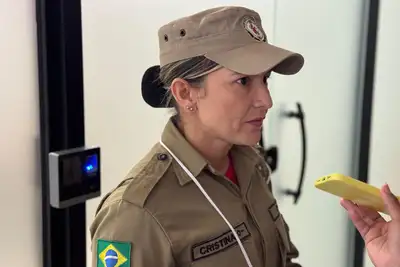
“For me, the training related to gender-based violence is of great importance, because many times we professionals in public security are the first to come into contact with this woman who is a victim of violence. So it is necessary to have this training so that we can understand how violence works, so that we can understand the rights of these women and provide increasingly humanized assistance, avoiding revictimizing this woman. Therefore, continuous training on this topic is always fundamental for us, as here we better understand how the entire functioning of this network works, which is extremely important, to understand the best decision to make when we attend to a situation in this area and direct it to the right place when necessary,” stated Sergeant Cristina.


